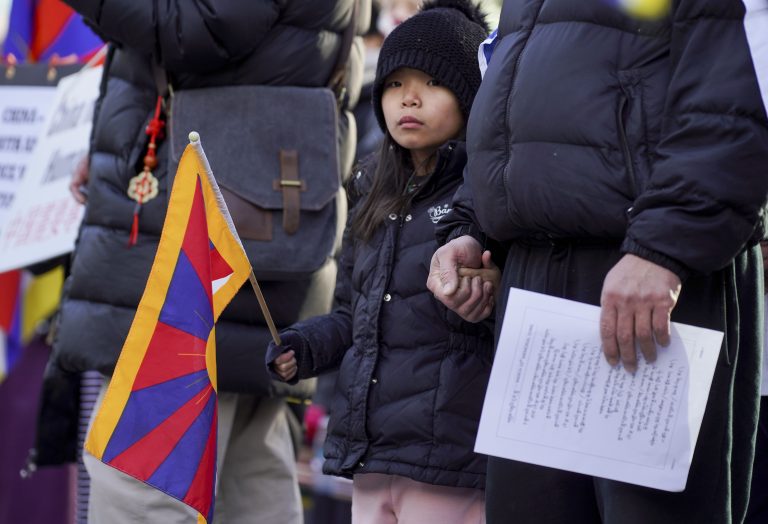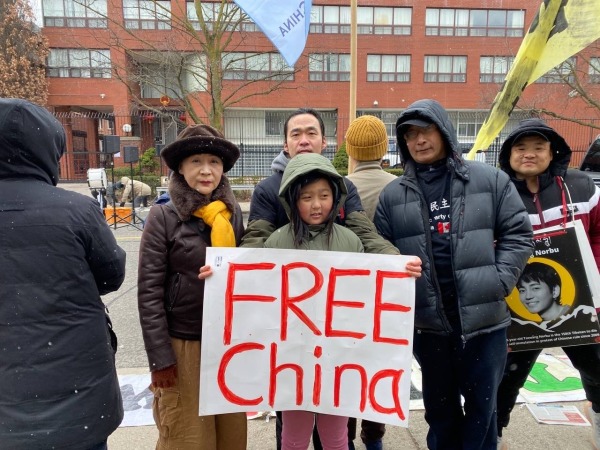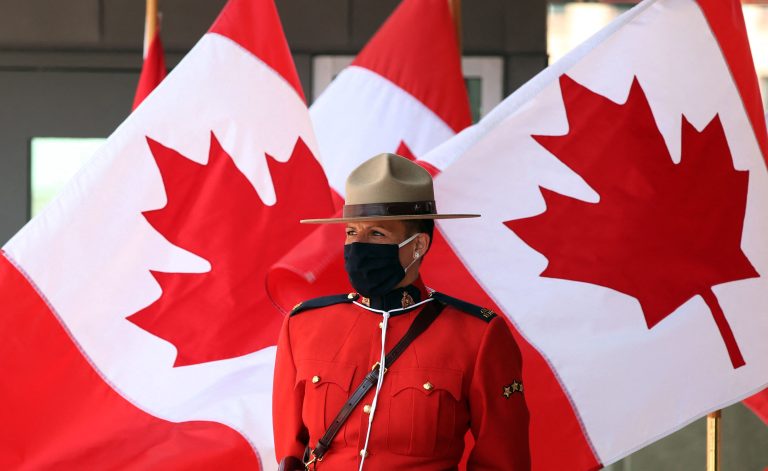An inquiry into the appropriateness and efficacy of unprecedented Coronavirus Disease 2019 (COVID-19) policies of Canada’s federal and provincial governments will begin in March, according to the Citizens Inquiry Canada (CIC).
The CIC says the investigation will also facilitate an opportunity to document history, heal divisions, and determine what lessons can be learned for the future.
In the 2.5 years following the start of the pandemic in early 2020, federal and provincial policy responses to COVID-19 “were, and to great extent remain, significant” interventions into Canadians’ lives, families, businesses, and communities, the CIC, a non-profit corporation that provides the legal framework for the National Citizens’ Inquiry (NCI) initiative said in its mission statement.
Particularly, the mandates “impacted the physical and mental health, civil liberties and fundamental freedoms, jobs and livelihoods, and overall social and economic wellbeing of nearly all Canadians,” the statement noted.
Announced in November of 2022, the NCI is a citizen-led and citizen-funded initiative independent of government whose “purpose is to listen, to learn, and to recommend. What went right? What went wrong? How can Canadians and our governments better react to national crises in the future in a manner that balances the interests of all members of our society?”
Success
You are now signed up for our newsletter
Success
Check your email to complete sign up
According to the CIC, “Such an inquiry cannot be commissioned or conducted impartially by our governments as it is their responses and actions to COVID-19 which would be under investigation.”
Public hearings will be held in person or be supplemented by virtual participation. The first will take place in Truro, Nova Scotia, from March 16 to 18, then continue to move West, to Moncton, Montreal, Toronto, Winnipeg, Saskatoon, Red Deer, and either Victoria or Vancouver — three days in each location — before wrapping up in mid-May.
Ordinary citizens and experts in various disciplines, medical, legal, social, and constitutional fields will be invited to testify as to the impacts of governmental pandemic measures.
The NCI commissioned a Maru Voice Panel poll of 1,533 Canadians in October of 2022. 24 percent of respondents who were asked what part of the pandemic affected them the most cited social effects, such as isolation and family tensions.
19 percent of respondents indicated both economic and health concerns. 12 percent stated the loss of rights and freedoms, such as expression, association, and assembly, personally affected them the most, while over 26 percent indicated they were unaffected.
NCI Leadership
The NCI was initially chaired by Preston Manning, founder of the Reform Party of Canada, a former Member of Parliament, and official opposition leader, who announced the launch of the NCI on Nov. 2, 2022 at a press conference on Parliament Hill.
Recently, Manning was appointed by Alberta Premier Danielle Smith to chair the province’s committee to review its COVID-19 response, thus preventing him from being the spokesperson or the chair for the inquiry.
Podcaster and journalist Trish Wood has become the NCI spokesperson in lieu of Manning.
The NCI hearings will be run independently by commissioners. At an online press conference on Jan. 31, Ken Drysdale and Bernard Massie were announced for the position.
According to Wood, the pair were chosen following the NCI legal team’s careful review.
Massie is a former Director of the National Research Council of Canada and a researcher of human health therapeutics, with 185 scientific publications to his name.
Drysdale is a forensic engineer with over 41 years of experience, who authored a report suggesting that governmental responses to the pandemic involved “criminal negligence.”
“The facts presented in The Report support the case that the risk to the public from Covid 19 was and is being criminally exaggerated to terrorize and coerce the public into accepting what we believe are illegal government dictates,” Drysdale wrote in a commentary for the Frontier Centre for Public Policy in August of 2022.
“Lives have been destroyed in the process,” he said, noting that unsafe medical procedures resulted in injuries and deaths, while government pandemic policies increased suicide, crime, drug addiction, domestic violence, and other social maladies.
“Peoples’ lives were disrupted with the closing of schools and businesses that shredded the social fabric of our nation. The closure of churches and other places of social interaction and community, eliminated support systems that were in place to assist Canadians,” Drysdale wrote.
Former Newfoundland Premier Brian Peckford withdrew from the inquiry, as he believed his hard-line stance against government actions could compromise the impartiality of the endeavor.
Douglas Allen, an economics professor at Simon Fraser University, said he also declined to participate to avoid a negative perception.
“I’ve been asked twice by different people if I would volunteer as a commissioner on the NCI. I’ve said no both times because I think I would come across as someone of bias. I was very much opposed to what happened,” Allen said in an interview.
“I’m certainly willing to be a witness for the NCI or for any other inquiry that comes along,” he added.
In his 2021 spring paper, Allen suggested that “[It] is possible that lockdowns will go down as one of the greatest peacetime policy failures in Canada’s history.”
In his recent essay Lockdown: A Final Assessment published by the Fraser Institute on Jan. 19, Allen said government-mandated stay-at-home orders, school and business shutdowns, mandatory face masks, and other non-pharmaceutical interventions to stop the spread of COVID-19 had “little to no effect” on mortality while increasing excess “collateral deaths.”
“Widespread, economy-wide lockdown policies were a disaster. They had only marginal effects on the ultimate number of deaths, but imposed enormous costs,” Allen added in the essay.
‘Where the people can be heard’
The NCI website allows people to sign up for updates, make donations, and offer to volunteer. More than 47,200 people have signed a petition in support of the inquiry as of the end of January.
“We’re moving forward and everybody is extremely enthusiastic. It’s an important project, and there are a lot of really, really dedicated people working on it,” Wood said in an interview.
“I hope that the commission itself will bring people together and answer the kinds of questions people have, and they are deep questions. They’re not just about science, and medicine, and quarantining, and lockdowns, they’re also deep philosophical questions about medical ethics and our connections to each other,” Wood said.
“[The inquiry] provides a legitimate and organized method for the people to have their say in Canada, and I’m hoping that, whatever the findings are, we will be able to influence governments and cause them to look circumspectly at their actions,” said John Graff, one of the coordinators of hearings in Saskatchewan.
“What got me excited about the National Citizens Inquiry is this is one of the purest forms of democracy that you can see. The idea that the citizen can speak and testify directly to the issues before the country—it’s a critical part of democracy, where the people can be heard,” he said.
Graff continued, “Both sides are able to testify—the sides that feel that the response by the government was a positive thing [or that it] was a negative action. We have to recognize there are people in the country that feel that everything went just like it should.”













